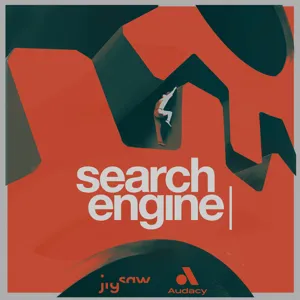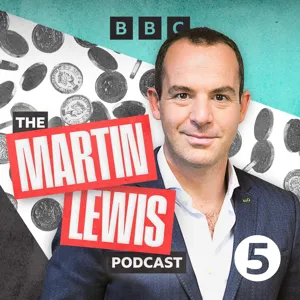Podcast Summary
Introducing a Premium Version for 'Search Engine' Podcast: The 'Search Engine' team introduces a premium version for additional content, acknowledging the financial challenges of relying solely on ad revenue. They believe in audience support for small, niche projects and remain committed to offering free content.
The team behind the podcast "Search Engine" has introduced a premium version called "incognito mode," which offers additional content for $50 a year or $7 a month. This move is a response to the financial challenges of running a podcast solely on advertising revenue. The team is excited about this new venture as it provides a platform for more experimental and intimate content. They believe that the future of media, especially for small, niche projects, will involve audiences supporting creators financially. While they are grateful for their sponsors, they acknowledge that not everyone will be able to afford the subscription. The team is committed to keeping both their regular podcast and incognito mode special for their dedicated audience.
The quality of illicit drugs in America is low and often adulterated: Users may not realize when their drugs are cut with more potent substances like fentanyl due to lack of experience with pure drugs and satisfaction with getting high regardless of substance
The quality of illicit drugs in America, particularly cocaine, is so low and adulterated that users often don't even realize when their drugs are cut with more potent substances like fentanyl. This is due to the fact that many users have never experienced pure cocaine and are satisfied with getting high at all, regardless of the specific substance they're consuming. The interview with a high-level drug dealer in the bonus episode of Search Engine Show sheds light on this issue, providing insights into how the drug market functions and why dealers add fentanyl to cocaine. The interview is a must-listen for anyone curious about the drug scene or with friends who use illicit substances.
A dealer's warning about Fentanyl's risks: Stay informed and test all substances due to Fentanyl's deadly consequences and flawed detection methods.
The unregulated drug market can be dangerous, with substances like Fentanyl posing significant risks. This was highlighted in a conversation with a drug dealer named Nate, who shared his experiences and advice for staying safe. Nate, who sells various drugs in a major US city, recounted his first encounter with Fentanyl, which was before its widespread use and the deadly consequences that followed. He emphasized the importance of testing all substances due to the highly flawed primary method for detecting Fentanyl, which gives almost half the time a false positive. Nate also mentioned that there are now better Fentanyl test strips available, which yield fewer false positives and are easier to use. Overall, the conversation underscores the importance of being informed and cautious when dealing with illicit drugs.
Issues with drug purity and safety in the market: Professional dealers face challenges ensuring drug purity and safety due to less honest individuals in the distribution chain, emphasizing the importance of reliable testing methods and open communication.
Despite being a professional and honest drug dealer, Nate encountered issues with drug purity and safety, particularly with the presence of fentanyl in substances like cocaine and heroin. This was a common problem during the early days when test strips weren't as reliable, leading to numerous angry phone calls from customers. Contrary to popular belief, MDMA was not found to contain fentanyl in large quantities, as confirmed by mass spectrometer testing from organizations like Dance Safe. Nate's unique situation as a professional dealer put him at the end of a distribution chain filled with potentially less honest individuals, making it challenging to ensure the purity and safety of the drugs he sold. The issue of drug purity and safety is a significant concern in the drug market, and it highlights the importance of reliable testing methods and open communication between dealers and consumers.
Buying illegal substances comes with risks and no recourse: Buying illegal substances like Ketamine can result in contaminated products and financial losses, with no reliable recourse or consumer protection
Dealing with illegal substances like Ketamine comes with significant risks and no guarantees or recourse. Nate's experience serves as a cautionary tale. When he bought a kilo of Ketamine crystals, expecting to turn it into powder for sale, he instead ended up with a toxic, rock hard, stinking mass. Despite his efforts to identify the contaminant and get a refund, he was unable to do so and ultimately had to dispose of the product. The lack of a reliable business bureau or recourse in the illegal drug market meant that Nate had to bear the financial loss himself. This situation could have been different if Nate were dealing in a legal and regulated market, where there are established channels for returns and consumer protection. Instead, he was left with no choice but to cut his losses. It's important to remember that dealing with illegal substances is a dangerous and unpredictable business, with no guarantees or protections for consumers.
Drug dealers often sell adulterated or misrepresented products: In the illegal drug industry, most substances are heavily adulterated, and users may unknowingly consume harmful substances
In the illegal drug industry, where customer service is often an afterthought, dealers may sell adulterated or misrepresented products. Nate, a source in the industry, shares his perspective, imagining dealers as desperate individuals who may have resorted to theft or selling their last resources to buy drugs to sell. He recalls instances from his past where friends had unknowingly purchased adulterated drugs, including overpriced baking soda and subpar cocaine. Nate's experiences paint a picture of a drug world where most substances are heavily adulterated, and users often don't notice as long as the drugs produce an effect. This state of affairs has become more consequential in the age of fentanyl, where the presence of this potent opioid can be deadly. Nate shares that even pure cocaine, when tested, often contains adulterants like amphetamines, mixers, and fillers. The implications of this reality are significant, as users may be unknowingly consuming harmful substances.
Importance of being informed about adulterants in illicit drugs: Being informed about potential adulterants in illicit drugs like cocaine is crucial for safety. Common adulterants can be disgusting and dangerous. Practical privacy tips and a harrowing story illustrate the risks.
Learning from this interview is the importance of being informed about the potential adulterants in illicit drugs like cocaine. Nate shared a disturbing fact about one of the most common adulterants, which is truly disgusting. He also provided practical advice for those who might find themselves in a situation where they need to ensure their privacy while accessing such information. Additionally, Nate shared a harrowing story about a drug mix-up that serves as a reminder of the risks and uncertainties associated with the use of illicit substances. To learn more about these topics and hear the full interview, sign up for incognito mode on search engine.show.






